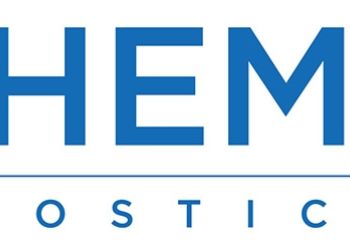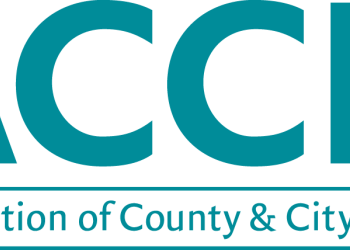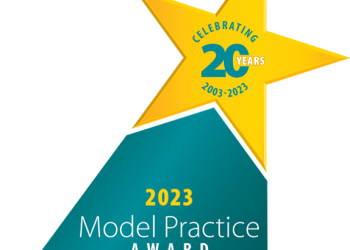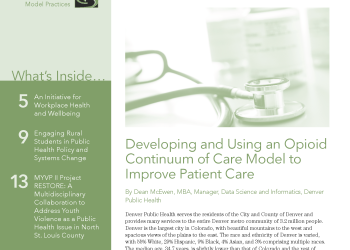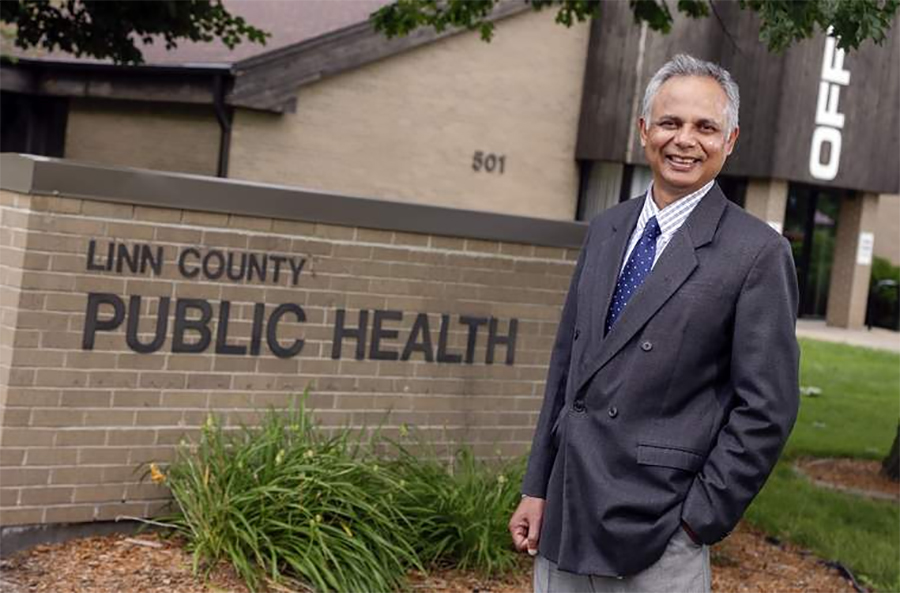
(Jim Slosiarek/The Gazette)
Interview by Taylarr Lopez, Communications Specialist, NACCHO
NACCHO’s Member Spotlight series features interviews with local health department leaders and staff about their careers in public health. This interview features Pramod Dwivedi DrPH, MS, MSW, MA, BSc, Health Director of the Linn County Health Department in Iowa. Below he shares the importance of positively affecting policy to implement public health programs and discusses the need to develop his workforce and staff competencies to ensure the success of his department in the future.
Tell us about your career path into public health?
My career path in public health was selective. When I graduated from college, I wanted to go into medicine. At that time, my father was a physician and he encouraged me to follow that same career track. My family wanted me to be a physician like my father but I really wanted to do something for the entire population instead of a patient-focused, so I chose this.
I was very aware that although public health is for everybody, there were those who are on the margins of society who needed much more help than others. It offered a social value to me as well as additional value. I also went to school to study social work. That’s where I learned that there are so many disparities and discrimination. Health was a very natural fit into my background and interest.
I studied preventive medicine and environmental health from the University of Iowa and interned in the local health department and then moved from there. I followed no other profession but public health all my life.
What are some of the highlights of your career in public health, and what makes the work that you do worthwhile?
Highlights of my career mostly focus on building the capacity for state and local health departments and building capacity is directly related to science-based awareness and education.
One of the things that I am very proud of is that I have built epidemiologic capacity in state and local health departments where I worked. I also managed and directed epidemiology and GI capacity. Epidemiology is the science of public health and is not often utilized in local health departments. It’s difficult to address the core functions of public health without using the tools of epidemiology. Epidemiology also ties into assessment, evaluation, and policy development.
I feel very strongly that public health capacity should be built by using the tools of epidemiology. Health departments are more likely to be accredited when epidemiology and surveillance capacity are integrated in health departments. Building epidemiology capacity also means that you have better performance and quality improvement programs. I’m not saying that a health department is entirely dependent on epidemiology, but it’s a very helpful discipline to have in a local health agency especially when there are outbreaks that epidemiologists can study to help control and prevent future occurrences.
What challenges are you or your health department currently facing?
There are numerous challenges, but I would say that emerging health issues such as opioids is a critical one.
The other challenging area is educating elected officials because in many cases, they are the ones who would provide funding. Ultimately, they approve the public health policy that you want to be passed.
Needle exchange programs, for example, is favored by some while others believe it will do more harm than good. Educating those that are against the program is extremely important and in doing so, it’s imperative to highlight the science behind it and its benefits to public’s health. My state at the moment doesn’t have a needle exchange program. We are hoping that this year, policymakers will pass a bill that will finally allow us to implement this needed program.
In addition, I think our relationship with the elected officials is critically challenging now. I’m hopeful, with the help of science, information, and data, we can convince them to do the right thing for the sake of our community’s health.
What would you say is the biggest change you’ve seen in public health since you began working in this field?
The biggest change I’ve seen in the public health field is quality and performance improvement of local and state health agencies and accreditation. Accreditation is the culmination of everything that we had done in the past and includes all the frameworks; even national frameworks. Those frameworks are now unified with accreditation. I believe accreditation is a worthwhile task and I think it’s going to transform public health in the coming years, both in local and state health departments.
How are you positioning yourself or your health department for the future?
Workforce development and competency in our staff are very important. We recruit staff that are not necessarily completely trained in public health, so developing competency is one of the most important things for us to do as we move forward.
In addition, building and maintaining connectivity with our community partners is paramount to accomplish our goals because as a governmental health agency, we cannot do everything on our own. We rely on partnerships, not only with community organizations, but also with colleges and universities. We aim to maintain good relationships with our partner schools in hopes that the graduate students would want to complete an internship with us. It’s really a “win-win” situation for both agencies. Our department also gets to learn from their research. The utility and applicability of the research is fundamental.
I believe that partnerships at different levels with different sectors can help improve our workforce development.
How long have you been a member of NACCHO, and what value do you find in belonging to the organization?
I have been working with NACCHO in different capacities for many years. Around the year 2000, I worked with the Community Health Advisory Committee and served two terms. I also worked with an environmental work group. I also was a member of the 2013 class of Survive and Thrive, NACCHO’s former training program for new local health officials. Finally, in 2014, I was elected to serve on the NACCHO board.
I think NACCHO is an important organization for local health agencies, and I cannot emphasize NACCHO’s importance more. My department finds NACCHO’s Mobilizing for Action through Public Partnerships and the Model Practices Database very useful. NACCHO is really a unique organization, well positioned to help assist health agencies throughout the nation.
Right now, accreditation is a big thing and I think it’s great that NACCHO is helping local health agencies with technical assistance. Public health professionals rely on NACCHO to be a leader and voice for local public health at a national level.
What do you enjoy doing in your free time away from work?
During my time off, I enjoy biking, hiking, and writing poetry.
For more interviews in the series, visit NACCHO Voice Member Spotlight.
